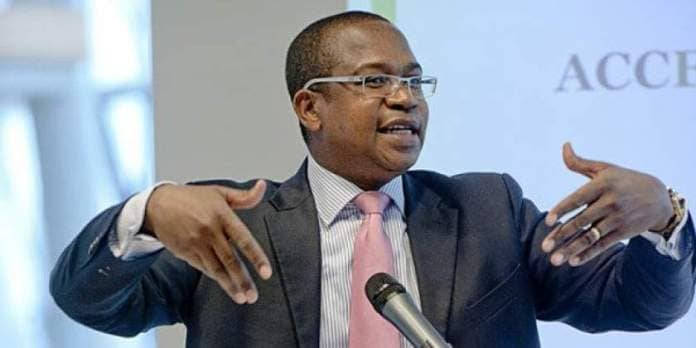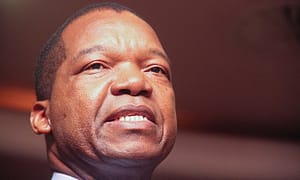Zimbabwe announces measures to stabilise exchange rate and economy

Minister of Finance Mthuli Ncube
Zimbabwe’s Finance Minister Mthuli Ncube has announced a series of measures to stabilise the exchange rate and the macro economy, amid a deepening economic crisis in the southern African nation.
In a statement issued on Thursday, Ncube said the measures include:
- Introducing a foreign exchange auction system to determine the official exchange rate of the Zimbabwean dollar, which has been losing value rapidly against the US dollar and other currencies.
- Increasing the statutory reserve ratio for banks from 2.5% to 5% to mop up excess liquidity and curb inflationary pressures.
- Reducing the fiscal deficit to below 3% of gross domestic product (GDP) by cutting non-essential expenditure and improving revenue collection.
- Implementing structural reforms to improve the business environment, attract foreign investment, and promote economic growth.
Ncube said the measures were aimed at restoring confidence in the Zimbabwean dollar, which was reintroduced in 2019 after a decade of using foreign currencies. He said the government was committed to maintaining a stable and predictable macroeconomic environment that supports economic recovery and development.
“The government is fully aware of the challenges faced by the public in accessing cash, which has resulted in some unscrupulous traders selling cash in exchange for electronic money,” he said. “To address this challenge, which is feeding into inflation, the Reserve Bank of Zimbabwe has been directed to inject additional cash into the economy through the banking system.”
Ncube, a former Oxford University professor and African Development Bank vice president, was appointed as finance minister by President Emmerson Mnangagwa in 2018. He has been tasked with reviving an economy that collapsed under former President Robert Mugabe’s 37-year rule.
Zimbabwe is facing its worst economic crisis in more than a decade, characterised by hyperinflation, currency depreciation, fuel shortages, power cuts, and widespread poverty. The Covid-19 pandemic has worsened the situation, with lockdowns disrupting economic activity and reducing tax revenues.
Ncube said the government was working on securing Covid-19 vaccines for its population and implementing a recovery and stimulus package to support affected sectors and vulnerable groups. He also appealed for international support and debt relief to help Zimbabwe overcome its challenges.
“We are confident that with these measures and with the support of our development partners and creditors, we will be able to overcome our current difficulties and achieve our vision of becoming an upper-middle-income country by 2030,” he said.





